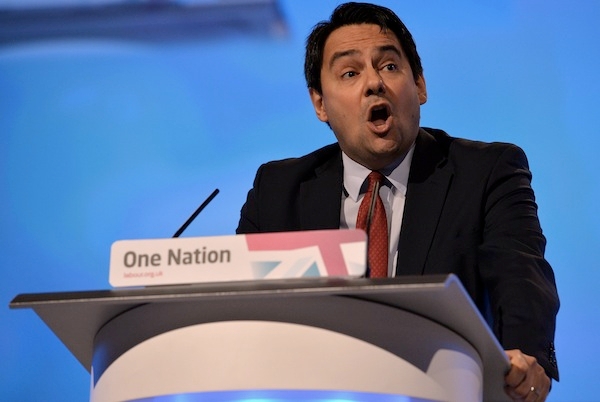Michael Gove and his colleagues have enjoyed poking Labour on education policy recently. His catty letter exchange with Stephen Twigg last week left Twigg with the victory for style with a supremely bitchy reply, while Gove won on substance (largely because he asked whether Labour’s education frontbench possessed any). Today he tried to assemble his own fantasy Labour education team as he took questions from MPs in the House of Commons chamber.
Kate Hoey gave him a forthright prod about the delay in a school converting to an academy in her constituency. Gove didn’t really answer her question, instead saying:
‘I’m very grateful to the honourable lady. She’s a brilliant campaigner for higher-quality schools in her own constituency, we’ll do everything we can to help and I’m afraid the question lays bare the fact that there are some really good MPs on the Labour benches who want their schools to be academies, but an insufficient number of Labour local authorities that are prepared to stand with us against the enemies of promise.’
He referred to those ‘enemies of promise’ again in the question time, identifying them as trade unions opposing academies. But it was in his answer to Barry Sheerman where he decided to set out a very clear division on education in the Labour party. Sheerman asked:
‘Would the Secretary of State agree with his own chief inspector of schools that over the last 15 years standards across the urban population of this country have risen quite remarkably and would he give this House this opportunity to hear him say, “well done teachers, you’ve done a good job, you could do more, but you’ve done pretty well over these past 15 years”?’
Gove replied gleefully:
‘I’m very grateful to my um… er… honourable friend, as I think he’s increasingly becoming, for giving me this opportunity to absolutely underline that point. Let me first of all praise those politicians, from the member for Sheffield Brightside, to Lord Adonis, who in the teeth of resistance from trades unions and others, pressed forward the case for reform. Let me praise the former Prime Minister Tony Blair for his courage in doing so. Let me regret that the momentum for reform was lost under the member for Morley and Outwood. But let me above all praise teachers for the fantastic job that we’re doing. We have the best generation of young teachers and the best generation of headteachers ever in our schools…’
He then went on to suck up to Speaker Bercow by praising the schools in his Buckingham constituency, but that answer contained a number of conspicuous absences. The first was Stephen Twigg, who garnered no praise at all, while Ed Balls was identified as a barrier to further education reform. The second was that while he praised young teachers and headteachers, he left out a tranche of experienced teachers. Perhaps that’s because he doesn’t think all of them are doing such a great job – Fraser argued in the magazine recently that he should sack the least effective 10 per cent of teachers to improve standards.
Importantly, these answers, combined with Gove’s recent declaration of love for Diane Abbott, show that he is trying to highlight sections of the Labour party that do not oppose education reform to create a contrast with the party’s frontbench. Twigg says he believes in reform, but Gove can undermine this by pointing to a group of his backbench colleagues and predecessors who he feels really support driving up standards with more than just lip service.







Comments